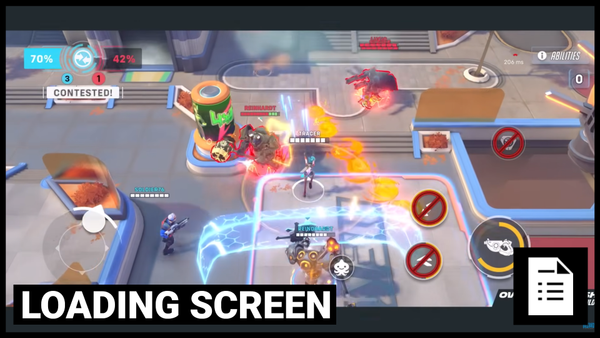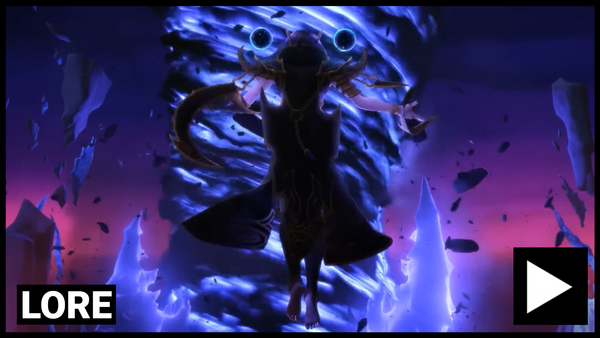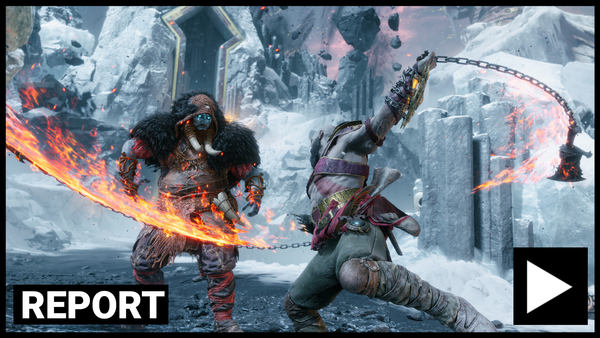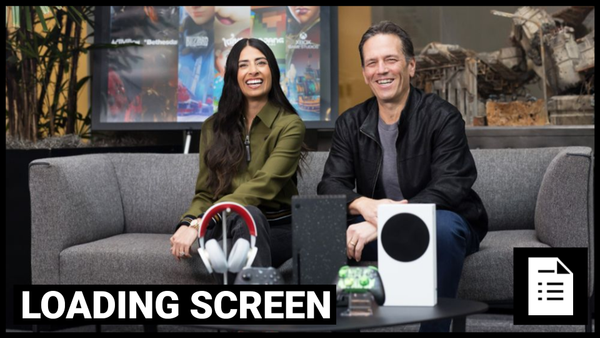Premium Access - the New Monetisation Trick That’s Only Getting Worse
Time is Money, and Publishers know it. We break down the newest, most unpleasant trend in games - Premium Access for Cash.
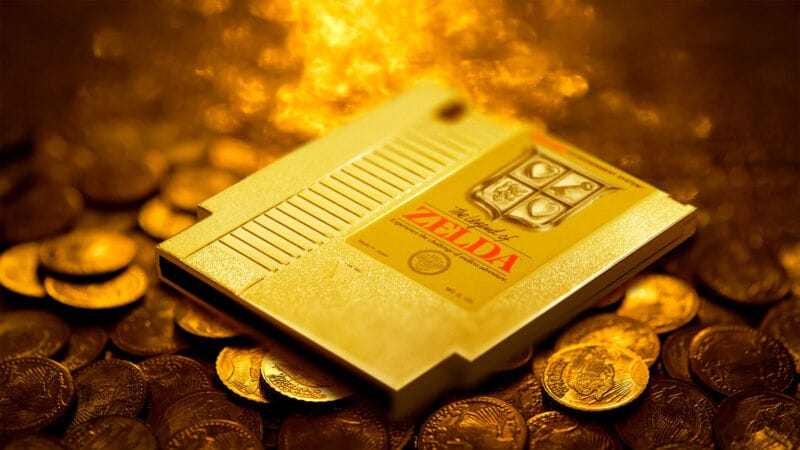
What Do All of The Following Games Have in Common?
Lies of P
Baldur’s Gate III
Total War Pharoah
Starfield
Forza Motorsport
Call of Duty: Modern Warfare III
Mortal Kombat 1
Payday 3
EA Sports FC24
Ghostrunner II
- They all found ways to get even more money out of players by exploiting FOMO on their launch day.
- Because every one of these games made extra money out of offering Premium Access for those willing to pay.
- This season of game releases has been rampant with it, and as a result we really felt the need to call it out.
- Each of these games had a pre-order bonus or a deluxe edition where if you were willing to pay more money - you could get started on the game sooner.
- In some - this was access as selling point to benefit a platform holder.
- Xbox Had Five Days of Premium Access for Starfield and Forza
- Especially valuable for them as they offer upgrade paths for gamepass subscribers to get in early.
- Playstation’s Deluxe Edition of BG3 had 3 Days Premium access
- Xbox Had Five Days of Premium Access for Starfield and Forza
- In others - this meant access to the multiplayer systems to ensure your competitive advantage - MK1, EA Sports FC24.
- You can’t miss out on those, especially if you’re hopping on with friends because of that Network Effect
- While for a few it definitely backfired - as Servers fell over for Payday 3, and so people who paid more got less.
- But Starbreeze still got paid! (minus whatever refunds they processed)
- In some - this was access as selling point to benefit a platform holder.
- In all cases though - the companies behind these games got slightly more money from you in order to have the privilege of not waiting several days for the real release date.
- Just think about that from a value perspective.
- These deluxe editions usually have some sort of cosmetic update, maybe a soundtrack available, perhaps a few low level early items.
- All of those have some degree of value - you’re getting something for your money that’s at least additional content for the game.
- If you want them, as a regular player you can always upgrade to the deluxe edition after you enjoy the game a little.
- By comparison - what is the value for 7 Days of Early Access after that period is over?
- To the standard player, only one thing is materially true.
- They can pay more for the first release of the game (the one that coincides with reviews and streams) or they can wait.
- Because this isn’t rewarding players who pay more with early access, it’s punishing players who won’t pay with a delay.
$10 to 7 Days
- So what’s prompted this as the de facto benefit that gets the gamers buying Digital Editions?
- Well it just so happens to align perfectly with the motivations of the money people.
- Because the enemy of the Money people behind games right now is time.
- The industry has changed rapidly within the last fifteen years.
- What worked to get money out of players on top of a purchase then, won’t work now.
- Project $10 from 2010 was designed to kill Pre-owned games.
- If you bought a game new, you got a code that gave you access to the multiplayer suite in Mass Effect 3.
- If you bought it pre-owned, you got no code, and you’d have to pay for that content for $10 online.
- This was an idea championed by then EA CEO John Riccitello to combat EA facing losses that they claimed were as a result of pre-owned physical sales eating into their profit margin.
Riccitiello told BusinessWeek that despite 11 straight quarters of losses EA is on the up again thanks to its 2010 line-up and strategies like Project Ten Dollar. "You see a six-foot hole that we're in. I'm telling you that we were in a 20-foot hole and we've climbed 14 feet out of it," he said.
- It worked for a very brief period of time.
- Players bought games directly, or they got used to the idea of buying a $10 DLC to get the rest of the content second hand.
💰
Except pre-owned games aren’t a thing any more.
- Especially in a post pandemic world where 75-90% of sales are digital for most games.
- Can’t trade in a game tied to your account (yet), or buy one second hand from some one.
- In the case of games like Alan Wake 2 - developers and publishers don’t even see the point in printing discs, instead they just set the price to $50 to balance that out.
- Which means for the cost conscious gamer - especially ones who have been burned by a rushed release causing technical issues - they’re no longer buying a pre-owned copy of a game.
- They’re just waiting for a sale. (usually after several patches)
- Considering that anything without a Nintendo Logo will be half price within about six months - that means delayed sales, and if bought from a direct seller, less margin back for the publisher/developer/’platform holder when bought.
- Premium Early Access is an incentive to buy early, when you might not otherwise.
- And because this is games - all of this is paying off.
- It’s working.
- Even in spite of the Branding change - EA saw a 25% increase on Premium Access numbers for EASFC24, a move no doubt helped by having the period of play increased to seven days compared to last year.
- But here’s the thing - this is only the start.
- Premium Access is already being improved upon as a money spinning method.
- Developers are doing premium access at all scales, it’s a guaranteed feature even in good games.
- The Q3 releases this year are just particularly highlighting that.
- The next move has already been considered.
- The minds of the monetisation experts are already starting to whirl.
- Premium Access is functionally moving the release date up for those willing to pay more - and to the Money People, that’s a great start.
- So what if you take it further?
TIME TO RAMP UP THE FOMO MOFOS
- Management want more money per copy sold, and they want that money secured as soon as possible, across as many SKUs as possible.
- They’ve got the first part, so now lets see how they’re bumping up the second.
- Because when the release date is effectively moved up - so is the pre-order window.
- So how can they incentivise people to buy a normal copy of the game that doesn’t come with that Premium Access, ahead of that Premium Access Window?
- As captured by Charlie Intel - they RAMP UP THE FOMO.

⏰
Let’s get the Dates clear: EA set a pre-order cut off date of August 22nd for an additional reward for Ultimate Editions - (one you can’t actually redeem till November) EA SPORTS FC24 launched in Premium access on 22nd September. The Regular launch date was the 29th September.
- So that’s a pre-order cut off a month before the premium release - long before anyone could have reviews or consumer advocacy towards the final product.
- That’s already gross as a tactic to get pre-orders.
- But now think about it from a FOMO perspective on the Premium Release.
- Didn’t pre-order before that window closed?
- Too Bad - no “freebie” for you
- But now I bet you’re more eager to pick up the game because you missed out on the first window.
- Especially if there’s “value” you’d miss out on by holding off till the full release.
- But that’s a comparatively minor element for Ultimate Team.
- One Random player by chance is comparatively low value overall.
- What about an entire character in a fighting game getting caught up in this premium access/pre-order nonsense?
WB Games Support wrote me that I'm not getting my pre-order MK1 Shang Tsung character because I ordered the game yesterday and it is NOT pre-ordered. What a pity that the game is not advertised like this on Steam.
by u/Progorion in pcgaming
- This Reddit post highlighted a very specific frame of thinking around how all of these FOMO timelines play out.
- If you Preordered MK1- you got long time series villain Shang Tsung as a playable character.

- Mortal Kombat 1 was released on September 19th.
- If you bought the Premium Edition - you got 1 Week of Early Access to the Game starting on the 14th.
- “Early” Access would imply it’s a bonus before the game launches, right?
- So buying the game on the 17th should count as a pre-order before release, right?
- Evidently not.
- Per the Reddit thread, we know that Steam was still counting the game as not officially launched and in the pre-order state, and a similar situation was in place for Starfield.
- But it didn’t count as a pre-order from Warner Bros point of view - because this player should have bought their more expensive version of the game earlier.
- Or they could just wait to buy the DLC character later.
- So no character for that player.
- To Netherrealms and Warner Bros - Mortal Kombat came out on September 14th.
- That’s when their Pre-order window ended, that’s what they built their marketing/review cycle around, that’s what players are apparently coming up against.
- Pre-orders are bad - that’s not uncontroversial.
- They’re also not going away.
- But they’re now a new vector in FOMO, interfacing with other ideas to try and get slightly more money out of audiences.
- Premium Access is a tool that doesn’t add anything to your game.
- As we’ve shown above in those two examples, it just gives more avenues for monetisation and confusion from players.
- All while punishing those who don’t want to pay more to get their game on the original launch.


